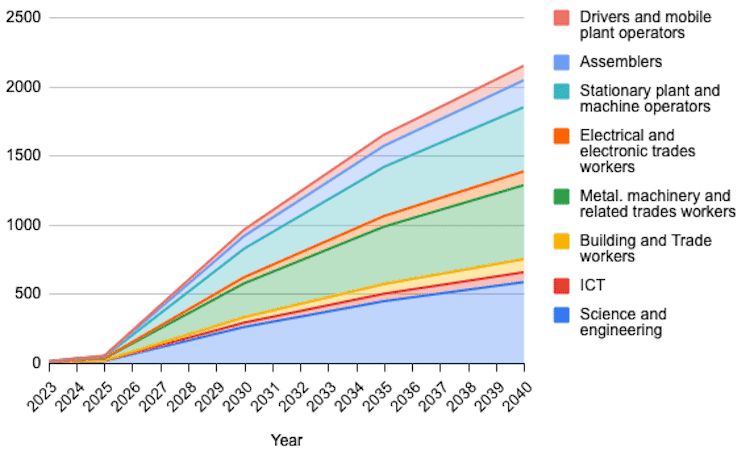The European Union’s Green Deal has started to modernise Europe’s economy and society. Where will it go next? That is the question the 27 heads of state and government will seek to address this week, in a Special European Council setting the priorities for the ‘strategic agenda’ of the next five-year EU term.
In the past five years, the European Green Deal has initiated major reforms across the union. It set an unprecedented speed and scale for the transition to ‘net zero’ greenhouse-gas emissions by 2050 and provided the solution to other crises: the recovery from the pandemic and reducing dependence on Russian gas, oil and coal.
But the job is not finished. Once a first mover on supporting green industry and investing in innovation, the EU is being outpaced by the United States and China. The next phase of the Green Deal needs an upgrade in ambition and scope.
Strategic choice
Luckily, the prize to be won is big. A new report from Strategic Perspectives shows that a 90 per cent emissions-reduction target for 2040 can be turned into a strategic choice for the modernisation of Europe’s future industry, enhancing energy security and restoring competitiveness.
The EU would benefit from a focus on driving prosperity, creating good jobs and supporting industry in decarbonising. That requires a new industrial strategy for Europe which can speed up the transition in terms of its technology, industry, finance and skills. This will tackle the twin risks the EU faces: of losing ground to competitors abroad and of leaving some parts of Europe behind in a two-speed transition.
To the east, China controls 60 per cent of the supply chain for net-zero technologies such as solar panels and batteries, positioning itself to be the world’s zero-carbon factory. The lack of European net-zero value chains means missing out on employment while keeping Europe reliant on Chinese technology supply.
To the west, the US leads the world in zero-carbon innovation. It plans to increase its electric-vehicle manufacturing capacity tenfold, fuelled by the Inflation Reduction Act’s better, faster funding. It is no surprise that the US continues to outpace the EU on growth—indeed the gap is widening.
Employment game-changer
A holistic European industrial strategy, combining political commitment, adequate funding, investment and employment security can be a game-changer. Strategic Perspectives’ analysis shows that, with such a strategy, 1.6 million additional green jobs can be created in the EU by 2035. By 2040, that could rise to 2.1 million (see chart).
New jobs created in the net-zero industry under an industrial strategy (thousands)

We don’t need to imagine what this looks like, because it has already begun to take shape. The development of a ‘battery valley’ in Hauts-de-France has brought jobs and investment into a historically deprived region. A new heat-pump valley is booming in the area between Poland, the Czech Republic and Slovakia.
The potential is great for many more battery valleys, heat-pump clusters and green-steel capitals—but we can only scale them up and consolidate their position if we invest in Europe instead of imports. The EU must call time on the age of expensive imports which keep its supply chains vulnerable to price shocks and geopolitical turmoil. Reliance on importing technology, materials and energy means European industry misses out on opportunities for value creation, which happens outside the EU instead.
Additional value added
We can invest in Europe: modernising existing industries such as steel, accelerating electrification and investing in new clean technology such as electrolysers, which boost capacity to create green hydrogen. Our analysis indicates that an industrial strategy could generate more than €233 billion of additional value added in Europe’s advanced manufacturing sectors by 2040.
All this relies on securing access to affordable energy across the EU, protecting businesses and households from exposure to fluctuating fossil-fuel prices. Electrifying the economy, scaling up renewable energies and improving energy efficiency could reduce gas, oil and coal imports by up to €856 billion between 2025 and 2040.
Five years ago, the Green Deal led the world—but others are picking up the pace. A bold new plan for Europe can keep it competitive with an ambitious industrial strategy, create good jobs, secure domestic energy and support industry in places at risk of being left behind. This week’s Special European Council can start sketching out that bold plan.
